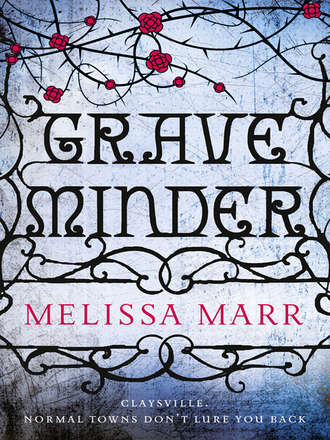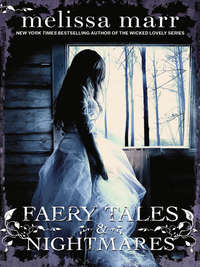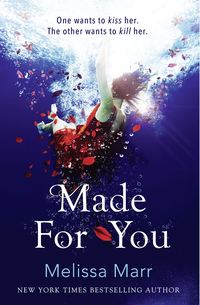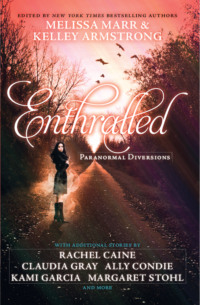
Полная версия
Graveminder
“You’re not blood, but you’re mine the same as she was.” Maylene stood up and took the flask back. “More so, now.”
She held up the flask like she was making a toast and said, “From my lips to your ears, you old bastard.” She squeezed Rebekkah’s hand as she swallowed the whiskey. “She’s been well loved and will be still.”
Then she looked at Rebekkah and held the flask out.
Silently, Rebekkah took a second sip.
“If anything happens to me, you mind her grave and mine the first three months. Just like when you go with me, you take care of the graves.” Maylene looked fierce. Her grip on Rebekkah’s hand tightened. “Promise me.”
“I promise.” Rebekkah’s heartbeat sped. “Are you sick?”
“No, but I’m an old lady.” She let go of Rebekkah’s hand and reached down to touch Ella. “I thought you and Ella Mae would …” Maylene shook her head. “I need you, Rebekkah.”
Rebekkah shivered. “Okay.”
“Three sips for safety. No more. No less.” Maylene held out the silver flask for the third time. “Three on your lips at the burial. Three at the soil for three months. You hear?”
Rebekkah nodded and took her third sip of the stuff.
Maylene leaned down to kiss Ella’s forehead. “You sleep now. You hear me?” she whispered. “Sleep well, baby girl, and stay where I put you.”
Rebekkah was still clutching the phone when it rang. She looked at the readout: it was Maylene’s area code, but not either of her numbers. “Maylene?”
A man said, “Rebekkah Barrow?”
“Yes.”
“Rebekkah, I need you to sit down,” he said. “Are you sitting?”
“Sure,” she lied. Her palms were sweating. “Mr. Montgomery? Is this …” Her words faded.
“It is. I’m so sorry, Rebekkah. Maylene is—”
“No,” Rebekkah interrupted. “No!”
She slid down the wall as the world slipped out of focus, collapsed to the floor as her fears were confirmed, closed her eyes as her chest filled with a pain she hadn’t felt in a very long time.
“I’m so sorry.” William’s voice gentled even more. “We’ve been trying to call all day, but the number we had for you was wrong.”
“We?” Rebekkah stopped herself before she asked about Byron; she could handle a crisis without him at her side. He hadn’t been at her side for years, and she was just fine. Liar. Rebekkah felt the numbness, the need-to-cry-scream-choke grief that she couldn’t touch yet. She heard the whispered questions she’d wondered when Ella died. How could she not tell me? Why didn’t she call? Why didn’t she reach for me? Why wasn’t I there?
“Rebekkah?”
“I’m here. Sorry … I just …”
“I know.” William paused, and then reminded her, “Maylene must be interred within the next thirty-six hours. You need to come home tonight. Now.”
“I … she …” There weren’t words, not truly. The Claysville tendency to adopt green burial procedures, those that relied on the lack of embalming, unsettled her. She didn’t want her grandmother to return to the soil: she wanted her to be alive.
Maylene is dead.
Just like Ella.
Just like Jimmy.
Rebekkah clutched the phone tightly enough that the edges creased her hand. “No one called … the hospital. No one called me. I would’ve been there if they called.”
“I’m calling now. You need to come home now,” he said.
“I can’t get there that quickly. The wake … I can’t be there today.”
“The funeral is tomorrow. Catch a red-eye.”
She thought about it, the things she’d need to do. Get Cherub’s carrier. Trash. Empty the trash. Water the ivy. Do I have anything respectable to wear? There were a dozen things to do. Focus on those. Focus on the tasks. Call the airline.
“Thank you. For taking care of her, I mean. I’m glad … not glad”—she stopped herself. “Actually, I’d really rather you hadn’t called, but that wouldn’t make her alive, would it?”
“No,” he said softly.
The enormity of Maylene’s being gone felt too huge then, like stones in Rebekkah’s lungs, making it hard to move, taking up the space where air should be. She closed her eyes again and asked, “Did she … was she sick long? I didn’t know. I was there at Christmas, but she never said anything. She seemed fine. If I’d known … I … I would’ve been there. I didn’t know until you called.”
He paused a beat too long before replying. “Call the airline, Rebekkah. Book a flight home. Questions can wait till you get here.”
3
WILLIAM SLID HIS PHONE ACROSS THE DESK, FARTHER OUT OF REACH. “She’s on her way. You could’ve called her; you probably should have.”
“No.” Byron sat beside his father’s desk and stared at the page of crossed-out numbers for Rebekkah. Some were in Maylene’s handwriting; others were in Rebekkah’s. She was even worse than he’d been. That doesn’t mean I need to go running to her side. He wasn’t going to be cruel to her—couldn’t—but he wasn’t going to chase after her hoping for another kick in the face.
“Julia won’t come with her. Even for this, she won’t return to Claysville.” William looked directly at Byron. “Rebekkah will need you.”
He met his father’s gaze. “And despite everything, I’ll be here. You know that, and so does Rebekkah.”
William nodded. “You’re a good man.”
At that, Byron’s gaze dropped. He didn’t feel like a good man; he felt tired of trying to live a life without Rebekkah—and utterly unable to live a life with her. Because she can’t let go of the past. Byron’s desire to be there for Rebekkah warred with the memories of the last time they’d spoken. They’d stood in the street outside a bar in Chicago, and Rebekkah had made it very clear that she didn’t want him in her life. Never, B. Don’t you get it? I’m never going to be that girl, not for you or anyone else, she’d half sobbed, half shouted, especially not for you. He’d known when he woke the next morning she’d be gone again; she’d vanished while he slept enough times that he was always a little surprised if she was actually there in the morning.
William pushed away from his desk. Briefly he clasped Byron’s shoulder, and then walked to the door.
Maybe it was only to avoid the topic Byron didn’t want to think about, but it was still a truth they needed to address. Byron started, “Rebekkah only lived here for a few years, and she hasn’t lived here for nine years.” He paused and waited then until his father looked at him before finishing: “She’ll have questions, too.”
William didn’t cow easily, though. He merely nodded and said, “I know. Rebekkah will be told what she needs to know when she needs to know it. Maylene was very clear in how to handle matters. She had everything in order.”
“And Maylene’s planning … is that all in her nonexistent file? I looked, you know. The woman had an office here, but there’s no paperwork on her. No plot. No prepaid anything. Nothing.” Byron kept his voice even, but the frustration he’d felt for years over the unanswered questions seemed ready to bubble over. “One of these days, you’re going to have to stop keeping secrets if I’m ever to be a real partner in the funeral home.”
“All you need to know today is that Maylene didn’t need a file. The Barrow woman pays no fees, Byron. There are traditions in Claysville.” William turned and walked away, his departing footsteps muffled by the soft gray carpet that lined the hallways.
“Right,” Byron muttered. “Traditions.”
That excuse had worn thin long before Byron left Claysville the day after graduation from high school, and it hadn’t gotten any more palatable in the eight years since. If anything, the frustration of these answerless discussions grew more pressing. The traditions here were more than small-town peculiarities: there was something different about Claysville, and Byron was certain his father knew what it was.
Normal towns don’t lure you back.
Most people never moved away. They were born, lived, and died in the town limits. Byron hadn’t realized how securely he was rooted in Claysville until he’d gotten out—and instantly felt the need to come back. He’d thought it would lessen, but the need to return home grew worse rather than better over time. Five months ago—after eight years of resisting it and not being able to ever assuage the need—he’d given in.
During those years away, he’d tried to stay in small towns, telling himself that maybe he wasn’t cut out for city living. Then he’d tell himself it was the wrong town, wrong city. He’d tried towns so small that they were specks of dust, and larger ones, and then more cities. He’d tried living in Nashville, in Chicago, in Portland, in Phoenix, in Miami. He’d lied to himself, blaming each move on the weather, on the pollution, on the wrong culture or the wrong relationship or the wrong funeral home. On everything but the truth. In eight years, he’d lived in thirteen places—although, admittedly, a few of them were only for a couple of months—and he couldn’t stop thinking the next move should be home every single time. The moment he crossed over the town line, every bit of wanderlust he’d been unable to sate dissipated; the vise that had tightened across his chest little by little over the years had suddenly vanished.
Will Bek feel the same way?
She had only lived in Claysville for a few years; she’d moved there with her mother at the start of high school, and they were gone before graduation. Somehow those three years were the ones that set the events for the last nine years of his life. Ella died, Rebekkah left, and Byron spent the next nine years missing them both.
Byron heard his father’s voice in their office manager’s office. He listened to William ask about the preparations for the wake and burial. After William was sure all was in order, he would go down to the preparation room to visit Maylene. She had been bathed and dressed; her hair and makeup made her look more lifelike. However, as was traditional in Claysville, she had not been embalmed. Her body would be returned to the earth with no toxins other than the lingering traces of those she’d ingested over the years.
Tradition.
That was the only answer he’d ever been offered to this and myriad other questions. There were times he’d thought the very word was nothing more than a convenient excuse, a way to say “this is not a point we will discuss,” but the truth was that, as far as Byron could tell, most of the town saw no need to alter tradition. It wasn’t as simple as a generational dispute: everyone seemed confused when he questioned town traditions.
Byron pushed his chair back with a thunk and went after his father, catching the older man at the top of the staircase leading down to the prep and storage rooms. “Dad, I’m going to head out, go over to the Barrow house to look around. Unless you need me …”
“I always need you.” The wrinkles in William’s face were divided between laugh and worry lines, but call them what one would, they still reminded Byron that his father was growing old. He’d been almost fifty when Byron had been born, so while most of his friends were minding grandchildren, William had been a first-time father. More than a few of his friends—like Maylene—were now gone; although, unlike her, all of them had died of natural causes.
Byron softened his tone. “Here. Do you need anything from me here?”
“I’m sorry I can’t tell you all the answers you want right now, but”—William’s grip on the doorknob tightened slightly—“there are rules.”
“I came home,” Byron said. “I’m here for you.”
William nodded. “I know.”
“You knew I would.”
It wasn’t a question, not truly, but William answered it all the same. “I did. Claysville is where we belong, Byron. It’s a good town. Safe. You can raise a family here, and you can know that you and yours will be protected from the world beyond.”
“Protected?” Byron echoed. “Maylene was just murdered.”
William’s already age-worn features looked years older for a moment. “She shouldn’t have been. If I’d known, if she’d known …” The elder Mr. Montgomery blinked away obvious tears. “Things like that don’t happen here often, Byron. It’s a safe place … unlike anywhere else out there. You’ve been out there. You know.”
“You talk like it’s another world outside Claysville.”
William’s sigh said what he didn’t: he was as frustrated by their circular conversations as Byron was. “Give me a couple more days, and you’ll have your answers. I wish … I wish you didn’t ask so many questions, Byron.”
“You know what would help with that? Answers.” Byron closed his eyes for a moment before looking at his father and saying, “I need air.”
William nodded and turned away—but not quickly enough for Byron to miss his look of regret. He opened the door and vanished inside, pulling it closed with a soft snick.
Byron turned and walked out the side door of the funeral home. His Triumph was parked behind the house just under a big willow. From the back, the funeral home looked like most of the other homes in the neighborhood. The yard was fenced in by faded wooden pickets, and a long covered porch had two rockers and a swing. Azaleas, an herb garden, and flower beds—carefully planned and replanned by his mother for years—still flourished now as they had when she was still alive. The oaks and willow looked just as they had in his childhood, shading the yard and part of the porch. The normalcy of it didn’t hint that the dead were cared for inside the building.
Gravel crunched under his boots as he walked the bike forward a few yards. Old habits were hard to escape even now, and the roar of motorcycles outside the kitchen window had always bothered his mother. He shook his head. Sometimes he wished she would walk out the door to give him hell for tracking mud on the floor or spitting gravel when he left, pissed off at his father again, but the dead don’t come back.
As a boy, he used to think they did. He’d sworn he’d seen Lily English sitting out on the porch one night, but his father had shushed him and sent him back to bed while his mother sat at the kitchen table and wept. Later that week, she’d torn out the entire flower bed and replanted it, and Byron suspected that his imagination and nightmares weren’t the only upsets resulting from living too near the dead. His parents didn’t argue often, but he’d have to have been clueless to miss the tension between them over the years. They’d loved each other, but being the undertaker’s wife wore on his mother.
Byron eased out into the scant traffic and opened the throttle. The wind slammed into him like he was hitting a wall. The vibrations of the engine and twists of the road allowed him to slip into a Zen-like state of simply being. When he rode, there were no thoughts—not about Lily English, or his mother, or Rebekkah.
Well, maybe still Rebekkah.
But he could outrun that, too. He might not be able to run from Claysville, but he could run from memories for a little while. He sped up, topping out the speedometer and whipping around curves fast enough that he needed to tilt dangerously close to the pavement. It wasn’t freedom, but it was the closest thing to it that he’d found.
4
WILLIAM STOOD IN THE QUIET OF THE PREPARATION ROOM. MAYLENE WAS silent on the table in front of him. She was gone. He knew that. The body wasn’t her, wasn’t the woman he’d loved for most of his life.
“Even now, I want to ask your opinion. I hate taking the next step without you.” He stood beside the cold steel table where they’d stood together over the years more times than he could rightly count.
“Do you ever regret it?” She didn’t look up as she asked the question. Her hand rested on her son’s chest. Jimmy hadn’t coped well with the loss of his family. Unlike his parents, he was made of softer stuff. Maylene and James were strong-willed. They had to be in order to raise a family and make a life.
“No, not what we do.”
Maylene lifted her gaze from her son. “You regret what we didn’t do?”
“Mae … you know that’s not a conversation that’s going to help either one of us.” He put his arm around her shoulders. “We were who we were when we got called. You were already spoken for. I found Annie. I loved her. Still do.”
“Sometimes I wonder … if I hadn’t tried to build a life so different from what we could’ve had—”
“Don’t. You and James had a good life; Annie and I did, too.” He didn’t pull Maylene closer. After several decades as her partner, he knew to wait until she was ready to be comforted.
“My husband’s dead, my granddaughter’s dead, now my son.” The tears slipped over the lines in her face. “My Cissy and both my blood-grand-daughters are angry at the world. Beks isn’t Jimmy’s daughter by blood, but she’s family now. She’s mine. She’s all I’ve got left.”
“And me. I’m with you till the end,” he reminded her as he had so many times before.
Maylene turned away from her son’s body and let William fold her into his embrace. “I can’t have her hate me, Liam. I can’t. She can’t know yet. She wasn’t even born here.”
“Mae, we’re getting too old to keep this up. The kids are more than old enough—”
“No.” She pushed away. “I’ve got one daughter who hates me, two granddaughters who can’t handle being this, and Beks. She’s only lived in Claysville a few years. I’m going to let her go for now. Byron wants to stay away from here, live a little. You know he does. Let them both have some time away.”
And William did what he’d always done when Maylene needed anything: he agreed. “A few more years.”
Now he was standing in the same spot—only this time they had no more choices. Byron needed to know; Rebekkah needed to know. In the years since Jimmy’s death, William had suggested it often enough, but Maylene had refused every time.
“No more choices, Mae.” He looked down at her lifeless body. “I wish I could protect them longer. I wish I could’ve protected you.”
That was the crux of it, though: he hadn’t. After half a lifetime of being by her side, they’d both gotten complacent. She’d handled so much that he’d almost forgotten what could happen.
Almost.
Every month the chance was there, and until he introduced his son to Mr. D, the town was unprotected. He loathed what Byron and Rebekkah were being asked to handle, but it was past time.
“They’re strong enough.” William brushed his fingers over Maylene’s cheek. “And she’ll forgive you, Mae, just as we forgave those before us.”
5
WHEN BYRON PULLED INTO MAYLENE’S DRIVE AND SHUT OFF THE ENGINE, he wasn’t surprised to see Chris leaning against his patrol car. He’d seen the sheriff in traffic an hour earlier and wondered at the time if he was going to get a ticket or just a lecture.
“Your mama would have your ass the way you were driving.” Chris had his arms folded over his chest. “You know that.”
Byron pulled off his helmet. “She would at that.”
“You trying to get arrested?” Chris scowled.
“No.” Byron got off the bike.
“Killed?”
“No, not that either. Just needed to relax. You ought to understand that,” Byron said lightly. “I watched you crash enough times in high school.”
“Well, I got some sense … and kids to look after now. You got a pass on a ticket today, but don’t think my looking the other way will be a regular thing.” Chris shook his head and then pushed off his car. “Guess you want to go inside again?”
The simplicity of it made Byron pause. The law was relative in Claysville. Chris and the town council were the first and last step for all legal matters—and sometimes for social ones, too. If they had been anywhere else Byron had lived, he wouldn’t have been able to just walk into a dead woman’s house; if they had been in a proper city, he couldn’t expect the police to open a door for his curiosity. Here, if Chris said he could go in, that was as good as having a warrant.
Byron shrugged off his jacket and laid it over the seat. “Tell me you collected evidence that makes some sort of sense of this.”
Chris had gone up Maylene’s walk, but he paused and looked back at Byron with challenge clear in his posture—shoulders back, chin up, and lips curved in a smile that was not genuinely friendly. “Why are you being difficult? There’s nothing to this, Byron.” Chris waited until Byron caught up with him and then he said, “Maylene’s gone, and whatever happened, it’s happened and done. She died, the door was open, and something bit on her.”
“You can’t think that. I saw her. We can look for fingerprints or … something.” Byron wasn’t a detective, didn’t know what clues he’d even look for—or if he’d recognize them if he saw any. “Let me call up some people I met. One of the women I knew in Atlanta was just finishing up a program in forensics. Maybe she could come here and—”
“Why?”
“Why?” Byron stopped midstep. “To find out who killed Maylene.”
Chris gave him the same sort of inscrutable look that William always did. It was galling to see it on the face of a man he’d once partied with. “They’re probably long gone. No sense chasing up the road after some vagrant. Maylene’s dead and gone. It won’t help anything to go asking questions. Not you or Bek.”
Byron paused. He hadn’t said it, but that was part of it: he wanted to have something to say when he faced Rebekkah. At least he’d had that when his mother died, an explanation, an answer of some sort. It hadn’t made the loss any less, but it helped.
I can’t protect her from this. I can’t fix it … I can’t deal with her blaming me again either.
“Just open the door.” Byron motioned at the key in Chris’ hand.
Chris shoved the key in the lock and pushed the door open. “Go on, then.”
For the second time in twenty-four hours, Byron crossed the threshold he hadn’t crossed in almost a decade. One of the last times he’d been in there was when Ella and Rebekkah had tried to sneak him in the upstairs window. The girls had shushed him and giggled; they had all tumbled together into an untidy pile, too high to do much more than that.
“She’s going to need a friend more than anything. I know you’ve had your … whatever it is, but you need to be there for her.” Chris stood just inside the door. The kitchen was now immaculate. No dishes waited in the drying rack. No blood remained on the floor.
“They cleaned already.” Byron wasn’t sure what he’d expected, but the simple fact of the situation was that any clue he might possibly have found had been wiped away with the bleach he could still smell.
“’Course they did.” Chris shook his head. “Can’t have Rebekkah coming back to Maylene’s blood on the wall. Would you want that?”
“No, but”—Byron swept his hand around—“how are we going to find who did this if everything’s all bleached and vacuumed and whatever else they did? Maylene was killed.”
“Maybe you ought to take your concerns to the council.” Chris didn’t follow him any farther into the house. “If it makes you feel better to look around, go ahead. Just pull the door behind you when you’re done.”
Byron took a calming breath, but didn’t reply.
“I’ll see you at the service tomorrow … with Rebekkah?” In that one short phrase, Chris asked all of the questions that he wasn’t verbalizing: did you reach her and is she coming and will you help her?
“Yes,” Byron confirmed.
“Good.” The sheriff turned and left Byron alone.
Because there is no crime scene to preserve. No sense of law or privacy or any damn thing that makes sense.
Byron walked through the house. If he knew what was normal for Maylene’s house these days, it would be easier to see what was amiss. Or if they hadn’t already cleaned. The kitchen had always seemed uncommonly large, but in an old farmhouse, that wasn’t too peculiar. The pantry, on the other hand, was enough to make him wonder if every single person in Claysville was hiding some sort of eccentricity. Years ago, the girls had been adamant that they weren’t ever to open the door to it, and at the time, he hadn’t cared. Now he stood speechless. The room itself was the size of some of the kitchens he’d had outside of Claysville. Shelves ran from floor to ceiling, and as he looked he realized that there were runners in the floor so as to slide any of the front shelves forward and to the side. Behind these were another set of equally stocked shelves. Maylene had enough food to cook for the whole town.








